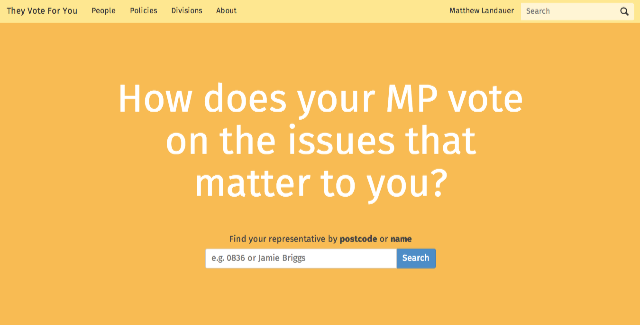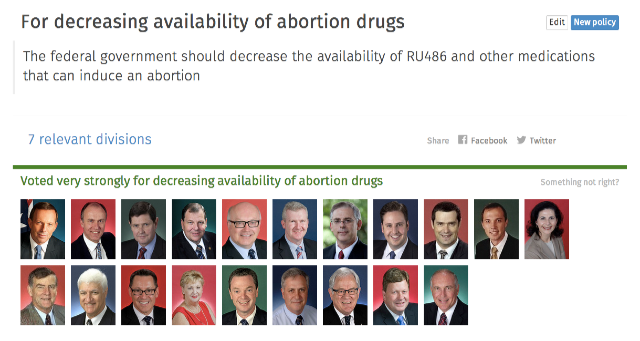We believe everyone should know what our politicians do on our behalf in parliament. If we don’t, how can we hold them to account meaningfully? How can we begin to talk to them about what we want them to do?
Trust in politicians is at an all time low. Yet we live in a time when technology has the potential to bring us ever closer to our representatives. It’s time we started using it.
What we see on television or read about online or in newspapers about parliament focuses on arguments in Question Time. We see adversarial battles, emotional rhetoric and partisan spin. It can be a distraction. It’s not an accurate view of what goes on in parliament.
We need to look behind what they say, and examine how they vote, because the most important things that politicians do in parliament is vote. They vote to make new laws, and update and amend the existing ones. Changes to the law can and do have a profound effect on our society, and the way we go about our daily lives. Yet if you want find out how they voted, you have to roll your sleeves up, trawl through pages and pages of Hansard, Votes and Proceedings and Journals of the Senate and try to make sense of it all. This is not something anyone can do easily.
Parliament should be easy, and accessible. That is why today the OpenAustralia Foundation is launching a new site They Vote for You, so you can find out how your representatives in parliament vote on issues you care about.
Our political researchers have been working to accurately summarise votes and connect these with easy to understand policy positions. So, now you can see where everyone in parliament stands on issues that you could talk to them about, issues that your MP or Senators might vote on again in the near future. Do you agree with them, or not?
How, for instance, has your representative voted on “a minerals resource rent tax“, “decreasing availability of welfare payments”, “increasing surveillance powers”, “decreasing availability of abortion drugs”, or “increasing restrictions on gambling”?
They Vote for You is a small but vital piece of “civic infrastructure” which help build the roads and bridges that 21st century citizens need to help them get to where they want to go.
You might ask if parliament should be putting all this together? Well, yes perhaps, but the machinery of parliament is slow, and we are not. In many ways, it’s easier for us to do it than it is for them. That’s why we are filling the gaps and hopefully in the process, change everyones’ expectations of what democracy looks like in the internet age.
And you can help.
If there is a policy missing that you would like to see you can do your own research and add it, much like Wikipedia. See a mistake? You can fix it yourself. A mistake could be as simple as a spelling error, or as subtle as one word in a description which changes how you interpret the result of a vote.
In our short life as a charity, the OpenAustralia Foundation, has already created several other non-partisan pieces of civic infrastructure. OpenAustralia allows you to keep tabs on what politicians say in Federal Parliament. With PlanningAlerts you receive an email any time something new is planned to be built or knocked down in your local area. With RightToKnow you can access inside information on what your government is doing by making a Freedom of Information request really easily. With ElectionLeaflets we monitor the leaflets that people receive in the mail during elections. If you live in Victoria, you can upload election leaflets you get in the mail for the upcoming state election.
The right to know what politicians say in parliament and how they vote on our behalf is one that has been fought for and won by citizens. It is a right that we must not take for granted.
Now it’s time to bring it bang up to date.
(An edited version of this was published at Guardian Australia)

